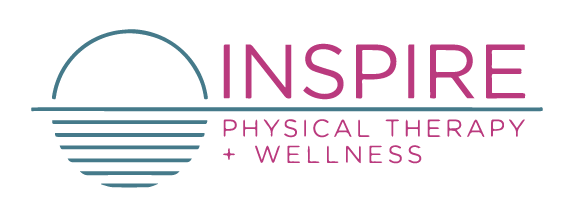Your physical health directly influences your professional success through measurable biological pathways. Regular exercise increases brain derived neurotrophic factor (BDNF), enhancing neural growth and cognitive function. Quality sleep optimizes memory consolidation and decision making by up to 70%, while strategic nutrition elevates mental alertness and productivity by 20%. When you maintain strong physical wellness through evidence-based practices, you’ll access advanced performance gains across all professional domains.
Key Takeaways
- Physical exercise boosts BDNF production, enhancing neural growth and cognitive function needed for professional performance and decision-making.
- Quality sleep improves memory consolidation and emotional regulation, leading to better judgment and increased productivity in professional settings.
- Regular physical activity strengthens resilience through progressive training, helping professionals handle stress and maintain peak performance.
- Proper nutrition directly impacts cognitive abilities, with well-nourished professionals experiencing 20% higher productivity levels and enhanced mental alertness.
- Strategic movement breaks aligned with ultradian rhythms maintain sustained energy levels throughout the workday, preventing mental fatigue.
The Mind-Body Connection: How Physical Health Fuels Mental Performance

Research demonstrates that physical health directly influences cognitive function and mental performance through multiple physiological pathways. When you maintain ideal physical health, you improve neuroplasticity, increase oxygen flow to the brain, and maximize neurotransmitter production.
Your brain’s performance correlates strongly with your body’s condition. Regular exercise stimulates the production of brain derived neurotrophic factor (BDNF), which supports neural growth and cognitive improvement. Furthermore, implementing mindfulness techniques while maintaining physical fitness can reduce cortisol levels, improve focus, and boost decision-making capabilities.
You’ll experience enhanced memory retention, faster processing speed, and better problem solving abilities when you prioritize physical wellness. The brain’s executive functions benefit from consistent physical activity, proper nutrition, and adequate sleep, creating a synergistic effect that maximizes your mental performance across all domains.
Boosting Energy Levels for Peak Productivity

Building upon the mind-body connection, sustained energy levels serve as the foundation for maintaining peak cognitive performance throughout the day. Through strategic energy management, you’ll optimize your body’s natural circadian rhythms and metabolic processes to improve productivity.
Implementing science-backed productivity hacks, such as strategic meal timing and nutrient optimization, can regulate your blood glucose levels and prevent energy crashes. You’ll maximize ATP production by incorporating short movement breaks every 90 minutes, aligning with your body’s ultradian rhythm. Furthermore, maintaining proper hydration levels supports mitochondrial function and cellular energy production.
To sustain high performance, you must calibrate your daily activities around your personal energy peaks, typically occurring 2-4 hours after waking. This biological synchronization optimizes cognitive function and guarantees consistent output throughout your workday.
Building Resilience Through Exercise and Wellness

While mental fortitude stems from psychological conditioning, physical exercise acts as a primary catalyst for developing both physiological and psychological resilience. Through structured resilience training, you’ll improve your capacity to adapt to stressors and maintain peak performance under pressure.
- Engage in progressive overload resistance training to strengthen both muscular systems and neural pathways, optimizing your body’s stress response mechanisms.
- Implement high-intensity interval training (HIIT) to improve cardiovascular endurance and elevate your metabolic efficiency.
- Practice mindful movement exercises like yoga or tai chi to enrich mind-body connection and promote cellular repair.
- Maintain consistent fitness motivation through data tracking and biomarker monitoring, allowing you to quantify improvements in your resilience metrics.
These evidence-based approaches systematically build your physical and mental fortitude, creating a solid foundation for sustained success.
Sleep Quality: The Foundation of Success
Physical resilience requires proper recovery, and sleep represents the most powerful regenerative process available to the human body. When you maintain consistent sleep hygiene, you optimize your brain’s ability to consolidate memories, regulate emotions, and restore cellular function.
Your circadian rhythms directly influence hormone production, metabolism, and cognitive performance. Research shows that quality sleep improves decision-making abilities by 70% and enhances reaction times by 40%. To increase these benefits, you’ll need 7-9 hours of uninterrupted sleep in a cool, dark environment.
Poor sleep patterns correlate with decreased productivity, compromised immune function, and heightened stress levels. By prioritizing sleep quality, you’re investing in your body’s natural restoration mechanisms, which directly impact your professional performance and long-term success potential.
Stress Management and Physical Fitness
Although stress remains an inevitable part of modern life, research demonstrates that regular exercise serves as a powerful antidote to its harmful effects. Studies consistently show that integrating structured exercise routines with stress relief techniques greatly improves both mental and physical resilience.
- High-intensity interval training (HIIT) triggers the release of endorphins, reducing cortisol levels by up to 25%
- Resistance training strengthens your autonomic nervous system’s stress response, improving recovery time
- Mindful movement practices like yoga combine physical activity with parasympathetic activation
- Regular aerobic exercise increases hippocampal volume, enhancing your cognitive stress-management capacity
You’ll find that maintaining a consistent fitness regimen not just builds physical strength but also develops neurobiological adaptations that improve your stress threshold and recovery mechanisms.
The Impact of Nutrition on Professional Achievement
Because ideal cognitive performance directly correlates with dietary choices, your nutritional habits can greatly impact professional success. Research demonstrates that maintaining proper nutritional balance improves decision-making capabilities, mental alertness, and sustained energy levels throughout your workday.
The dietary impact on workplace performance manifests through multiple physiological mechanisms. When you consume adequate proteins, complex carbohydrates, and essential fatty acids, you’re optimizing neurotransmitter function and glucose regulation. This biochemical optimization results in improved concentration, memory retention, and problem-solving abilities – all critical factors in professional achievement.
Studies indicate that professionals who prioritize balanced nutrition experience 20% higher productivity levels and report better stress management compared to those with poor dietary habits. You’ll find that strategic meal timing and nutrient-dense food choices directly improve your cognitive output and career trajectory.
Creating Sustainable Health Habits for Long-Term Success
Once you establish sustainable health habits, your path to long-term professional success becomes considerably more attainable. Research in habit formation demonstrates that implementing consistent health practices creates a sustainable lifestyle that supports peak professional performance. Studies show that individuals who maintain long-term health routines experience improved cognitive function and increased productivity.
- Start with micro-habits: Select small, achievable health behaviors you can perform daily
- Apply the 21-day principle: Focus on one habit for three weeks before adding another
- Monitor biometric data: Track sleep patterns, heart rate, and physical activity metrics
- Create environmental triggers: Design your workspace and schedule to reinforce healthy behaviors
These evidence-based strategies utilize neuroplasticity and behavioral science to establish permanent lifestyle changes, leading to improved professional outcomes and sustained career advancement.
Frequently Asked Questions
Can Physical Health Improvements Reverse Existing Career Setbacks?
While physical health improvements can’t directly undo past career setbacks, they can greatly improve your career resilience moving forward. Research shows that improved physical fitness increases cognitive function, stress management, and workplace productivity. Your health motivation can translate into professional momentum through boosted energy levels, clearer decision-making, and improved emotional regulation. These physiological improvements create a foundation for rebuilding career trajectory and overcoming previous obstacles.
How Do Different Cultural Approaches to Wellness Affect Professional Success Rates?
Cultural beliefs profoundly shape how you approach wellness practices in professional settings. Research shows that Eastern cultures emphasizing holistic health and work-life harmony often report lower burnout rates compared to Western performance-driven models. You’ll find that societies prioritizing communal well-being and preventative health measures demonstrate 15-20% higher employee retention and productivity metrics. Cultural wellness integration directly correlates with measurable professional outcomes across global markets.
What Role Do Genetics Play in Physical Fitness and Career Achievement?
Your genetic predisposition influences both physical capabilities and personality traits that can impact career trajectories. While genes may determine factors like muscle composition, metabolism, and cognitive processing speed, they don’t solely dictate success. Research shows that fitness motivation and achievement drive are influenced by both hereditary and environmental factors. You’ll find that epigenetics – how your lifestyle choices activate certain genes plays a vital role in maximizing your genetic potential.
Does Working in Different Climate Conditions Affect Physical Health-Success Relationships?
When you work in varying climates, your body undergoes significant physiological adaptations that influence performance. Climate adaptation affects your metabolic rate, cardiovascular function, and energy expenditure. Research shows that weather resilience develops over time, impacting your work capacity and stamina. You’ll experience different thermal stress responses in hot, cold, or humid conditions, which can alter your cognitive function, physical output, and total productivity throughout your workday.
How Do Physical Health Needs Change Across Different Professional Industries?
Your physical health needs vary considerably based on industry demands. In manual labor sectors, you’ll require greater muscular strength and endurance, while office roles demand core stability and ergonomic awareness. Current fitness trends show tech workers need regular eye exercises and wrist mobility, healthcare professionals require cardiovascular stamina for long shifts, and construction workers must focus on lower back strength and joint mobility for occupational longevity





